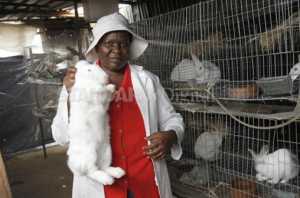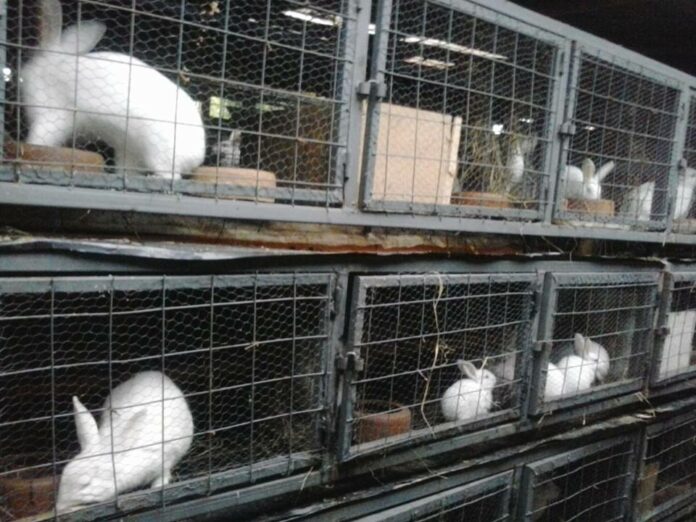What started off as a hobby for Josephine Razugu has become a prosperous business enterprise.
For Razugu, rabbit keeping is close to her heart. She is the proud owner Queen Usagi Rabbit Empire, an agribusiness venture that boasts of more than a hundred rabbits.
“It started as a hobby in 2014. I began with 10 does (females) and eight bucks (males) which I kept in a small cage behind my house. They multiplied and I decided to go for training in Ngong town to familiarise myself with rabbit keeping,” says Razugu, who lives in Rongai, Nairobi.
Eager to expand the venture, the mother of five embarked on a journey to make money, plenty of it, from rabbit keeping. “I built five wire mesh cages as I saw an opportunity to make it a profitable business venture. I was ready to handle the risks that came along with it,” she says.
Two years down the line, the rabbits have multiplied ten-fold. She currently has more than 100 bunnies of four breeds—the New Zealand White, Chinchilla, Californian White and Dutch Dwarf breed.
“I have sold hundreds of rabbits. I never thought it would be such a successful venture because of the problems I had when I started out,” she says.
In 2014, Razugu’s project was thriving and the rabbits were multiplying fast. Unfortunately, 40 rabbits died one weekend when she was away.
“I had hired a casual worker to help me take care of the rabbits since I was away from home. When I came back, I found that 40 rabbits had died. Perhaps my farmhand did not feed them well. I almost gave up. But some of my friends who keep rabbits encouraged me not to give up,” she says.
Her bunnies mostly feed on hay and pellets. When mature, they weigh between three and four kilogrammes.
“I sell a mature buck at Sh6,000 and a doe for Sh5,000 to farmers. Mine is a business enterprise but I am planning to start a project where I will be donating one rabbit to active groups of farmers for free and help them grow their own businesses then later extend the same to other youths or groups,” she says.

“But we retain one rabbit after they give birth under the beneficiary’s care. The one-rabbit project is a job creation drive to those who want to venture into agri-business. You can do it as a beginner or a start-up business,” she says.
Razugu trains aspiring farmers to rear and breed rabbits.
After the training programme is complete, farmers are given a pregnant doe to kick-start their venture. Razugu also checks on the farmers’ progress.
She says aspiring farmers often seek to instructions on how to progress, and in one occasion, Razugu trained 40 farmers.
An online platform she established, Queen Usagi Rabbit Empire, provides an interactive forum for rabbit farmers.
A well fed doe can produce up to 12 offsprings in a month. Bucks and the does are kept in separate cages that are clean and where food and water are plentiful, says Razugu.
“I sell the rabbit meat to individual customers who call me to make their orders. I also use the rabbit manure as fertiliser in my farm. I mix the rabbit urine with water and use in my vegetable and flower garden. Our locality is semi-arid but urine mixture makes my vegetables green throughout the year,” she says.









